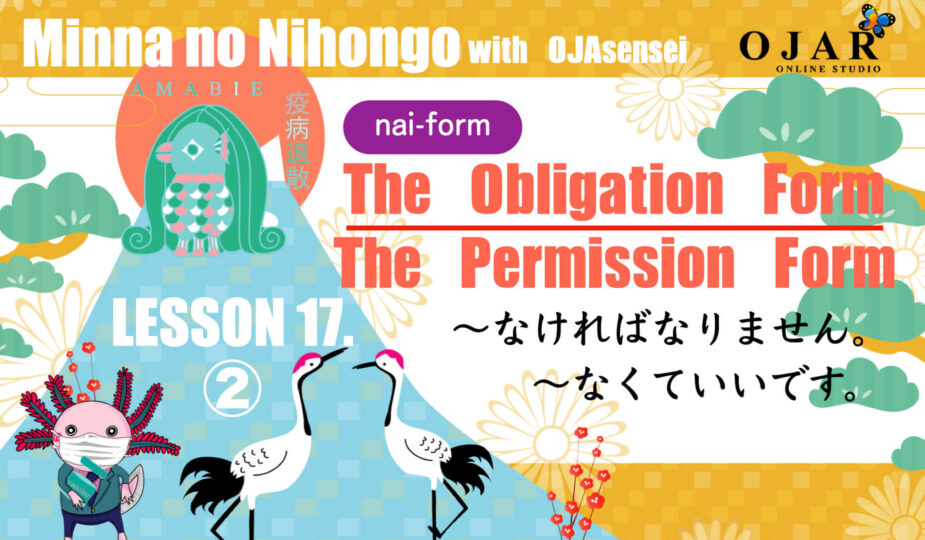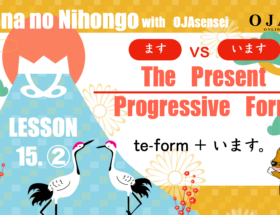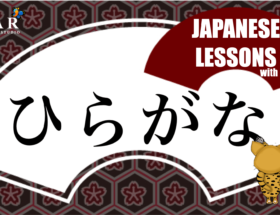Today’s lesson is; Minna no Nihongo 17② | Must Do & Don’t Have to Do.
Can you say “I must study hard.” in Japanese? Have you ever seen the sign a board “You must stop.” on the street? You can learn the obligation and the permission form in Japanese here!
Minna No Nihongo: Beginner 1, 2nd Edition (Japanese)
Customer Reviews: ★★★★☆
Publisher : 3A CORPORATION; 2nd Edition (March 16, 1998)
CONTENTS
The Obligation Form | Must Do ~.
Let’s learn the obligation form.
This form is formal and polite expression. So you can use this for anyone and need to use a “nai-form” conjugated verb. If you don’t know how to conjugate nai-form, you can learn it here!
When we speak English, we use the right grammar depending on the situation like; “I must go home because I’m hungry. (It’s a subjective intension.)” or “I have to leave soon because I have the curfew. (It’s an objective intention.)” But we don’t have to use the obligation form according to the intension properly.
■ Must Do ~. ~なければなりません。
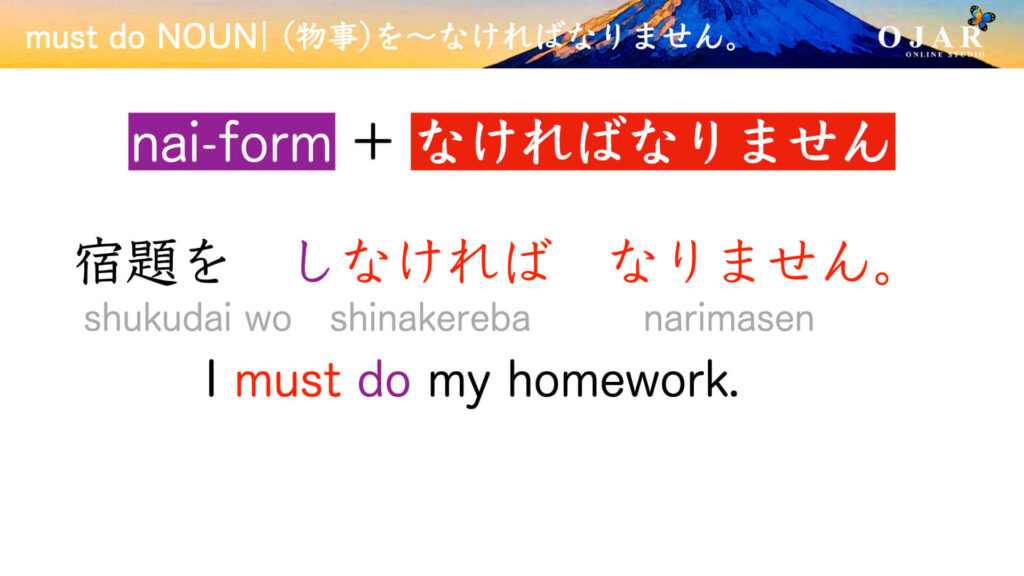
You can express the obligation form with “nai-form + なければなりません”.
You can take the both meaning of “speaker must do” and “listener must do” as we often omit subject of the sentence.
Let’s learn how to make the obligation form here!
・NOUNをVERBなければなりません。
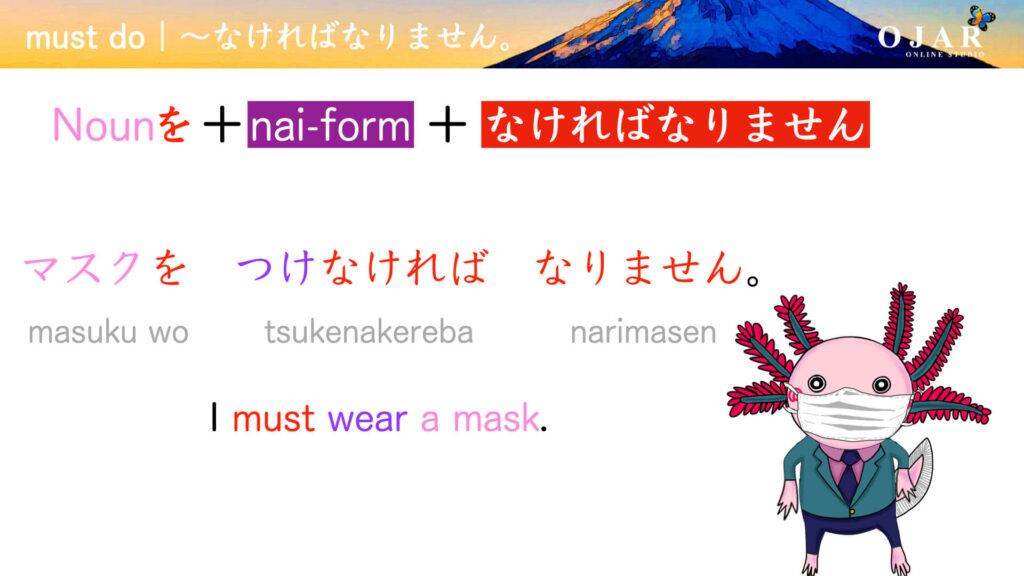
十分な 間隔を あけなければ なりません。
juubunna kannkaku wo akenakereba narimasen
I / You must keep a plenty of space.
・PLACE に(to) / で(in, at)VERBなければなりません。
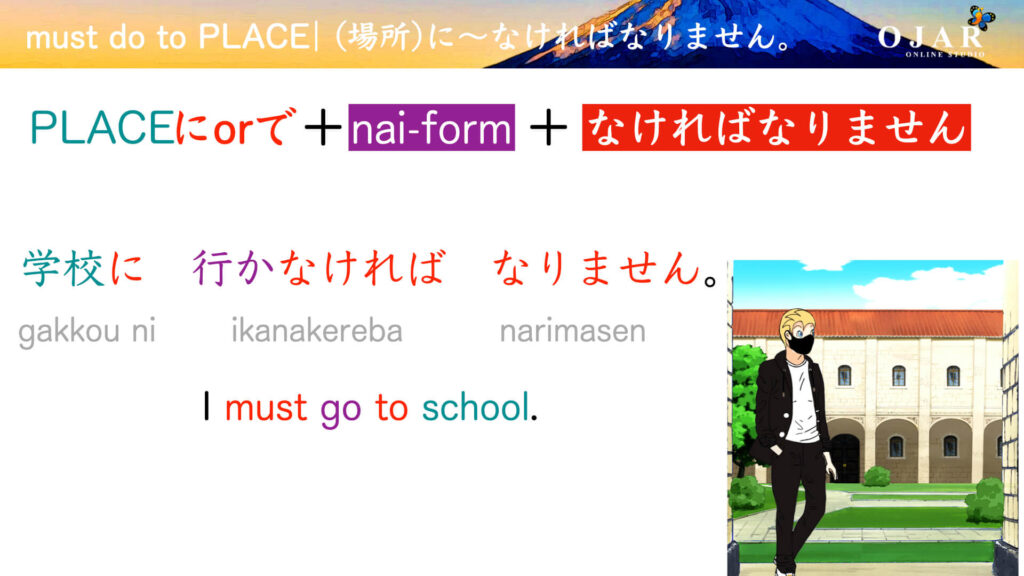
ここで 書かなければ なりません。
koko ni kakanakereba narimaen
I/You must write it down here.
・TIMEに(at, on, by)VERBなければなりません。
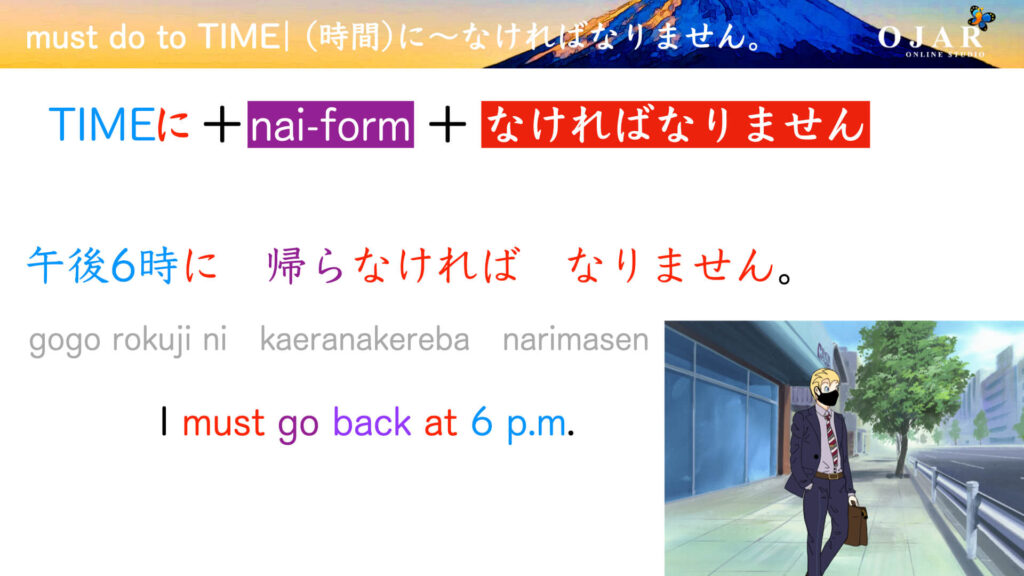
今 しなければ なりません。
ima shinakereba narimasen
I / You must do it now.

You don’t have to add に these words;
昨日 今 明日 先週 今週 来週 先月 今月 来月 昨年 今年 来年 etc…
■ The Obligation Form | Casual Expressions
Let’s learn how to express the casual obligation form.
You can tell the different various nuances by using forms properly.
Learn how to use the forms with Japanese expressions commonly used here.
1. End with “nai-form”
宿題を しないといけない。
shukudai wo shinaito ikenai
I / You must do my homework.
2. Omitted “narimasen”
宿題を しなければ。
shukudai wo shinakereba
I must do my/your homework.
3. A Bit Formal
宿題を しなくては。
shukudai wo shinakutewa
I must do my homework.
4. Casual
宿題 しないと。
shukudai shinaito
I / You must do my/your homework.
5. Very Casual And Cute
宿題 しなきゃ。
shukudai shinakya
I must do my homework.
6. Very Casual And Cuter
宿題 しなくちゃ。
shukudai shinakucha
I must do my homework.
7. Sounds Like a Stubborn Man
宿題 せねばならん。
shukudai seneba naran
I / You must do my/your homework.
8. Sounds Like a SAMURAI
宿題 せねばならぬ。
shukudai seneba naranu
I / You must do my/your homework.
9. Sounds Like Old Japanese That Women Would Use
宿題 せねばなりませぬ。
shukudai seneba narimasenu
I / You must do my/your homework.

When you talk with your friends and family, you should use these casual expressions because it sounds more natural.
~なければなりません。 | Exercise 1.
The Permission Form | don’t have to Do
■ Don’t Have to Do ~なくていいです。
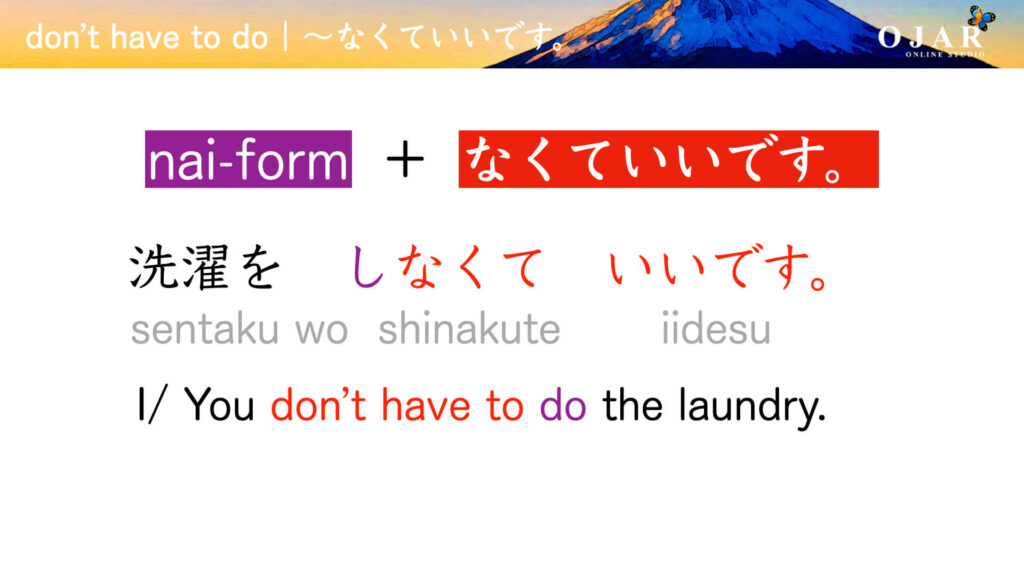
You can make the permission form with “nai-form + なくていいです”.
This form sounds gentler and you can imply that the listener can do or not in this sentence like a “don’t have to do” in English.
Let’s learn how to use the permission form here!
・NOUNをVERBなくていいです。
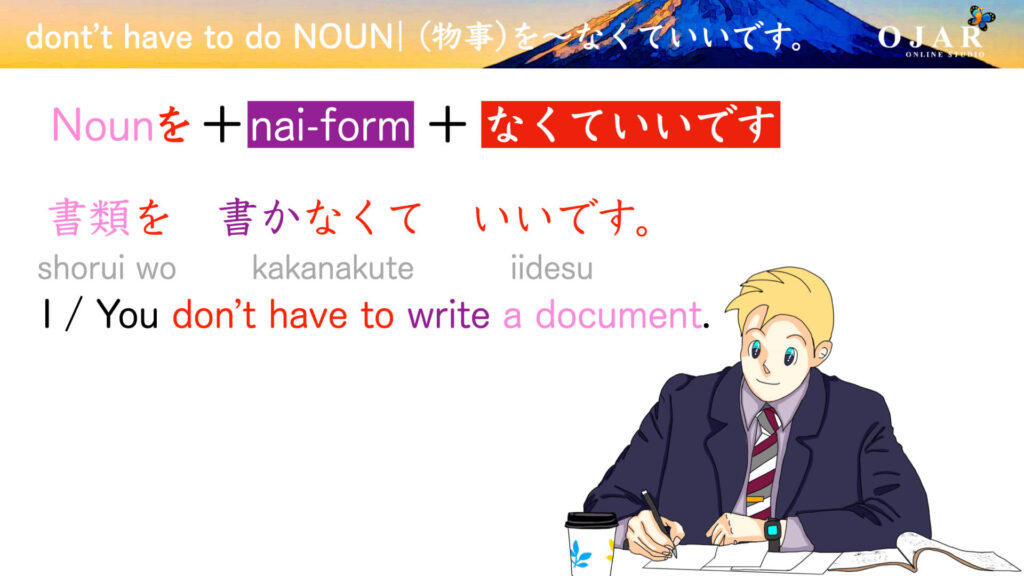
皿洗いを しなくて いいです。
saraarai wo shinakute iidesu
I / You don’t have to do the dishes.
・PLACEに(to)/ で(at, in)VERBなくていいです。
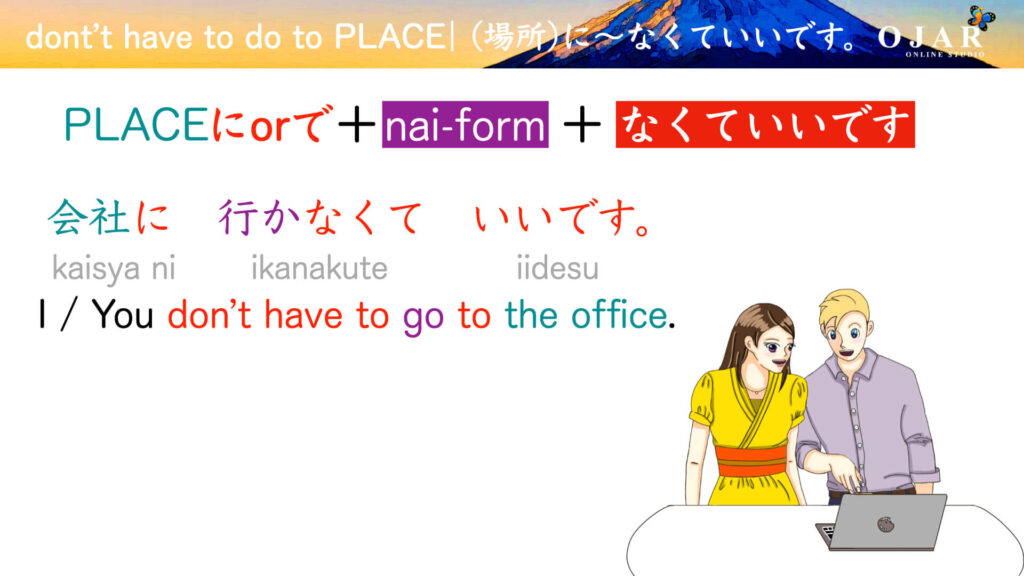
病院で 待たなくて いいです。
byouin de matanakute iidesu
I/You don’t have to wait at hospital.
・TIMEにVERBなくていいです。
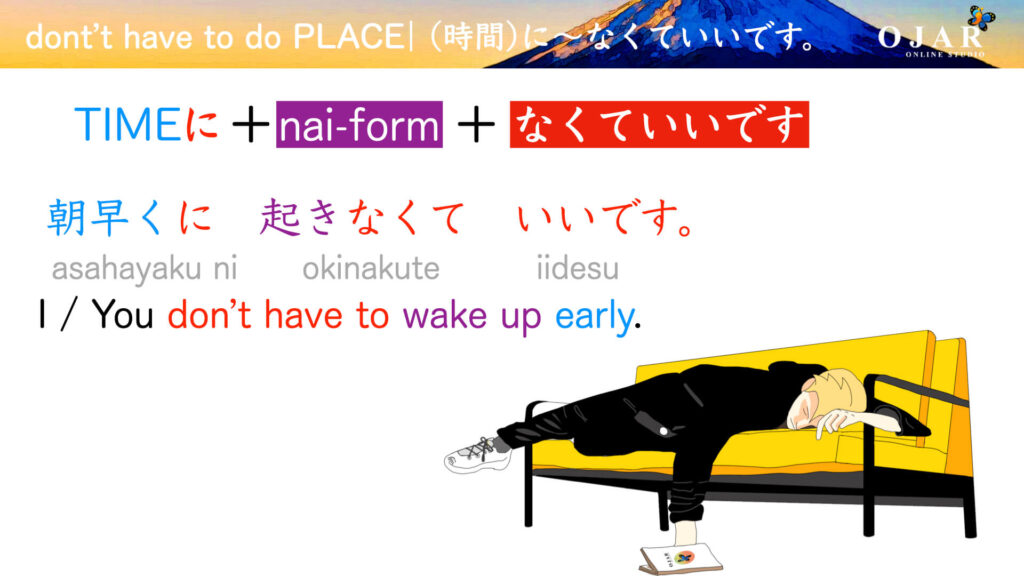
今週 提出しなくて いいです。
konshuu teishutsu shinakute iidesu
I/You don’t have to submit it this week.
■ The Permission Form | Casual Expressions
Let’s learn how to express the casual Permission form.
You can tell the different various nuances by using forms properly. Plus, I’m going to tell you several dialects.
1. omitted “desu”
宿題 しなくていい。
shukudai shinakute ii
I / You don’t have to do my/your homework.
2. Sounds Gentle
宿題 しなくていいよ。
shukudai shinakute iiyo
You don’t have to do your homework.
3. osaka-ben (dialect)
宿題 せんでええ。
shukudai sende ee
I/You don’t have to do my/your homework.
4. hakata-ben (dialect)
宿題 せんでよか。
shukudai sende yoka
I/You don’t have to do my/your homework.
~なくていいです。 | Exercise 2.
Homework
Translate Japanese into English and comment below.
① 今月 確定申告を しなければなりません。
②税務署に 郵送しなくて いいです。
Okay, that’s all for today!
Good luck with your Japanese study.
Minna No Nihongo: Beginner 1, 2nd Edition (Japanese)
Customer Reviews: ★★★★☆
Publisher : 3A CORPORATION; 2nd Edition (March 16, 1998)
THE NEXT LESSON is:
Minna no Nihongo 18① | “Can Do”
THE PREVIOUS LESSON is:
Minna no Nihongo 17① | The Imperative Form “Don’t do” in Japanese

